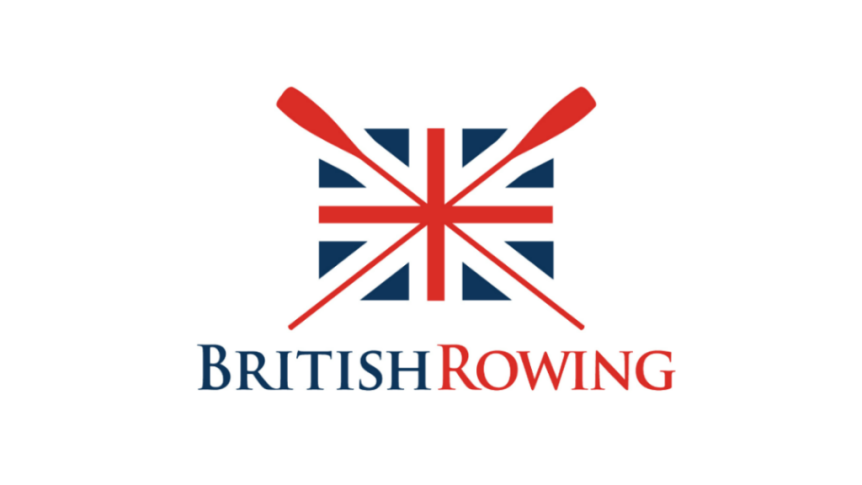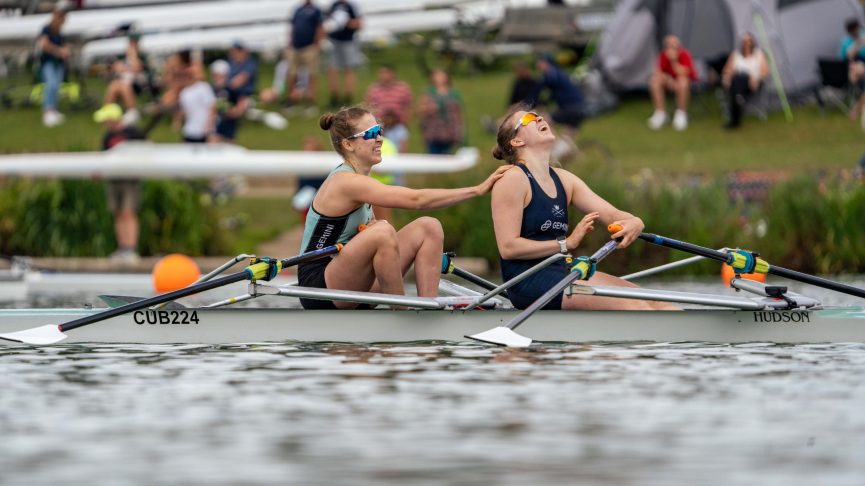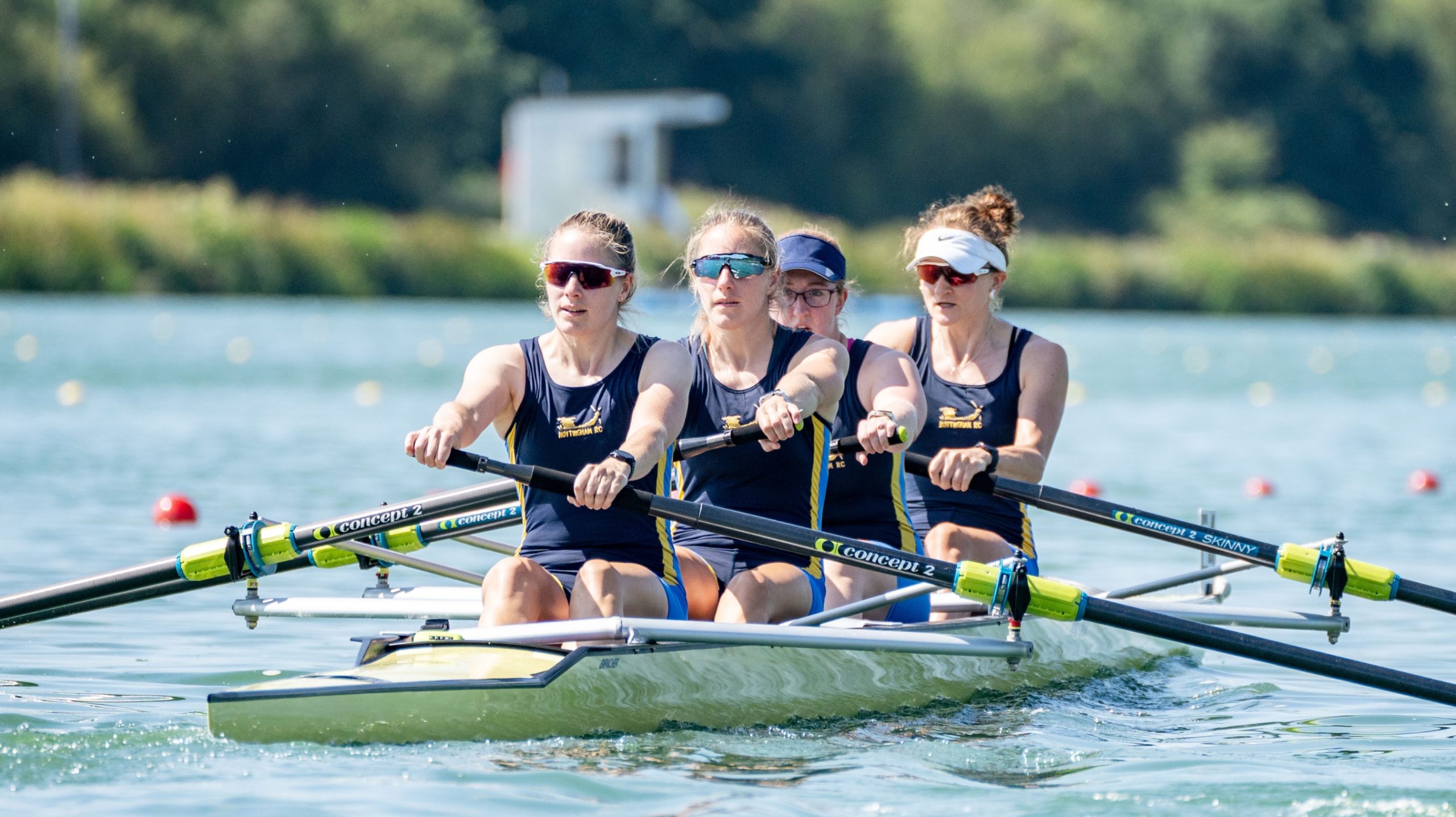Juniors help Stratford upon Avon BC become fit for the future
Earlier this month, 15 athletes from the under 13 to under 17 squads took part in an interactive Sustainability Workshop led by coach and Masters rower Eric Appleton
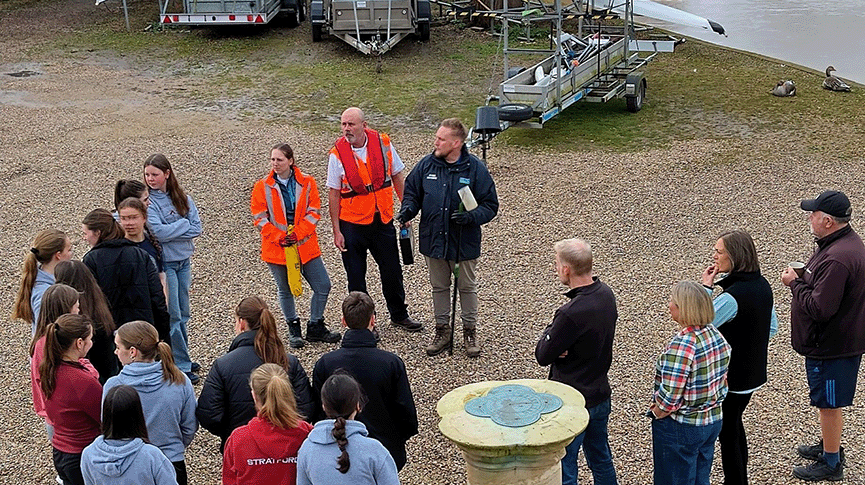
Severn Trent executives get ready to demonstrate river testing protocols
The workshop was organised and supported by the club’s new sustainability working group, which includes Vice Chair, Gina Fusco; Safeguarding Officer, Lizzie Sartain; Co-Treasurer Jake Blatcher and Chris Belcher, Fun Regatta organiser of recent years. Club member and ‘Rubbish Friend’ Claudine Pearson assisted with resources.
Over the course of the afternoon, the athletes worked in groups to answer a series of questions on sustainability, including “What does sustainability mean to you?” and “What are the consequences if we don’t act sustainably?”
The group watched two recently-launched short films: World Rowing and WWF to partner until 2024 to improve global water quality and British Rowing launches Environmental Sustainability Strategy.
The workshop took a brief outdoor break by the pontoon where Severn Trent River Rangers demonstrated water testing for ammonia. Too much ammonia can be toxic to fish and other aquatic life. Sewage effluent from treatment works is a major source of ammonia in rivers along with diffuse run-off from agriculture. (Source: WCS Group.) Everyone was delighted to find that amonia levels were extremely low that day.
Olivia Boertje, River Protection Lead, Severn Trent, said, “River Health is important, and we all have a responsibility to drive positive change to ensure the wellbeing of our present and future environment. As the effects of climate change intensify, we witness a surge in extreme weather events—a phenomenon that reverberates not only through our lives but also across our waterways. It was great to engage with passionate individuals actively participating in discussions around Sustainability and River Health. I look forward to seeing their passion drive forward improvements to help protect our rivers and encourage others to do the same.”
Luke McCusker, Senior River Ranger, Severn Trent, said, “Our teams are committed to improving the health and biodiversity of the region’s rivers and watercourses. We are out on the riverbank’s day in, day out, resolving problems, and working closely with the hundreds of amazing customers, groups, clubs and associations linked with them – such as Stratford upon Avon BC. There are challenges across all sectors, river health is a complex mixture of lots of things, and sustainability is huge key part to help improving them, so we are really pleased to see all the positivity, engagement and interactions from Stratford upon Avon BC’s new youth Sustainability group, looking forward to working together in the future, great work all round!”
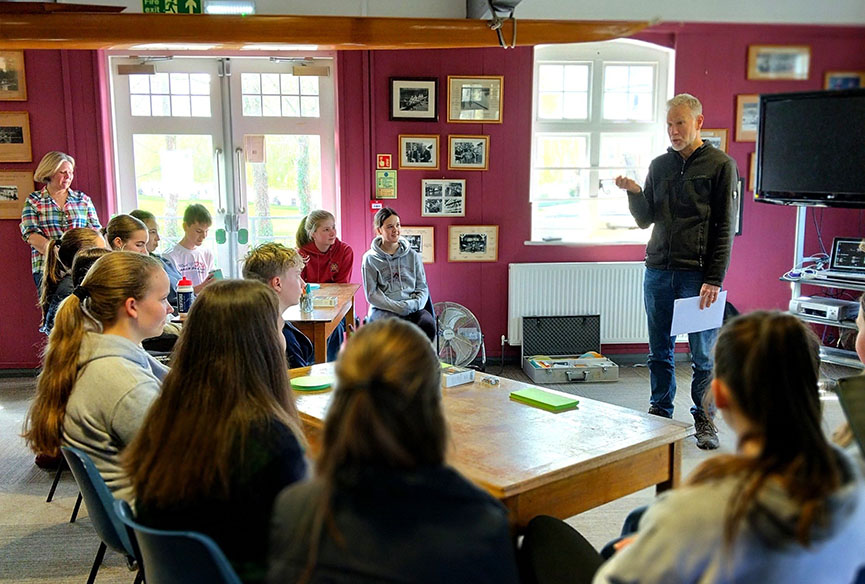 Stratford’s Masters Rower and J17/18 Coach Eric Appleton addresses the sustainability workshop
Stratford’s Masters Rower and J17/18 Coach Eric Appleton addresses the sustainability workshop
In the final section of the workshop, the athletes discussed how their club could be more sustainable and suggested ideas for a more sustainable regatta. Suggestions to reduce the event’s carbon footprint included: encouraging lift shares, not purchasing single use plastic, sourcing local and homemade food, choosing to support local businesses, separating food waste collection, improving signage around waste and recycling, choosing recycled glass for prizes and selling reusable cups. Concerns on waste and recycling were addressed: a local waste management company, Fortress, takes mixed rubbish and sorts on site. A visit to the materials recycling plant was proposed to the junior squad members by Dawson Curnock, Chairman, who was also present for the day.
“As custodians of our stretch of the River Avon, we can try to limit the impact that we have on it”
Dawson said, “Like everyone in the current climate, our club is keen to ensure that its members and athletes have a clean and safe environment to perform the sport that they love so much. We are all aware that there are external challenges that we cannot control as individuals or clubs. However, as custodians of our stretch of the River Avon, we can try to limit the impact that we have on it and its surroundings. Clearly, we, the current custodians, cannot control the ageing process. It is therefore imperative we allow future custodians to lead the awareness, generate the initiatives and drive the process to cleaner rivers. Enthusiastic is an underestimation of the atmosphere generated by the workshop. Several of the initiatives can be implemented into our Junior Sprint Regatta on 15 June, which was agreed should be a starting point to showcase the great ideas from our younger members.”
To wrap up the session, a representative from British Rowing, Lily Fraser, talked with the juniors about the importance of using communications to create dialogue with members and the wider community on the environment and to build momentum for change. She explained, “With 90% of British Rowing members considering sustainability to be important, British Rowing is looking forward to working with grassroots clubs such as Stratford, the rowing community and the nation as a whole to champion a cleaner, bluer future!”
The workshop concluded with networking over homemade cakes as junior squad members they did a takeover on the British Rowing Instagram stories to mark the day.
Harriet Froom, J17 Athlete said, “The workshop helped to explain how things can’t just happen straight away. Even though we may be a small club, just doing our bit for the river or local environment, even though it may seem as if it has little impact, it does add up to something bigger when a lot of places do similar things.”




